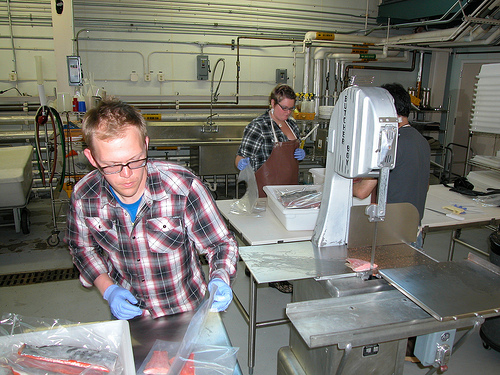Puerto Rico’s agriculture has been steadily declining and imports total 85 percent of the food consumed on the island. Additionally, almost all of the $11 million per year that USDA purchases for use in Puerto Rico’s school meals are purchased from companies in the continental United States. What’s more, each year the island’s School Food Authority purchases about $80 million in food to be served in school. We saw these as opportunities for local farmers and decided to do something about it.
The Market Expansion Conference, held June 23-24 in San Juan, teamed seven U.S. Department of Agriculture (USDA) agencies and other Commonwealth and federal partners to show over 250 farmers how to sell food to local schools, expand their businesses and increase their participation in USDA programs. Puerto Rico’s milk farmers, cattle ranchers, pineapple growers and many others eagerly listened to USDA experts explain grading and licensing, and provide information in the areas of funding and procurement. Read more »
As part of the People’s Garden Initiative for Gastonia, North Carolina, the National Science Laboratory (NSL) built two beehives to produce honey without the use of pesticides. If insect control was needed, we planned to use only what was allowed for use in organic products. When Varroa mites were discovered in the hives, we used thymol, a natural oil, to control them.
Several weeks ago, we collected honeycomb samples from each of our hives to test for about two hundred different pesticides. The NSL has built a reputation for quality pesticide residue analysis. Many members of its staff have performed this work for over 20 years. The equipment we use for analysis is the latest and greatest, producing detection limits of 1 part per billion—the equivalent to one drop of water diluted into 11,008 gallons, or about three seconds out of a century. Read more »

Students learn about aquaculture in real time during a tour of the Auburn University Shellfish Lab on Dauphin Island, Alabama, thanks to Bryant High School and USDA funding (photo courtesy of Julian Stewart and Brian Himelbloom).
This post is part of the Science Tuesday feature series on the USDA blog. Check back each week as we showcase stories and news from the USDA’s rich science and research portfolio. Read more »

Everett Dobrinski, CoBank, North Dakota
Cross posted from the White House Rural Champions of Change website:
Everett farmed all his life in North Dakota and taught high school while farming for a few years. Nowadays, Everett is a full-time farmer and a leader in co-operatives with farming. Read more »
The Southwestern Region of the U.S. Forest Service worked with federal, state and local agency partners to host two fire and flood recovery workshops providing communities in Arizona affected by fires and floods with a forum to learn about available funding and technical assistance opportunities.
The workshops, held in Scottsdale and Eager, AZ, were open to individual homeowners, business owners, community leaders and affected Tribes of recent fires in Arizona. Read more »

Bird watching tour participants help conduct a nest drag, a low-tech census of nesting birds, with Headley Ranch windmills in the background.
Every year USDA’s Natural Resources Conservation Service (NRCS) in South Dakota joins partners to coordinate a bird watching tour on a farm or ranch that participates in one of our voluntary conservation programs. Read more »



